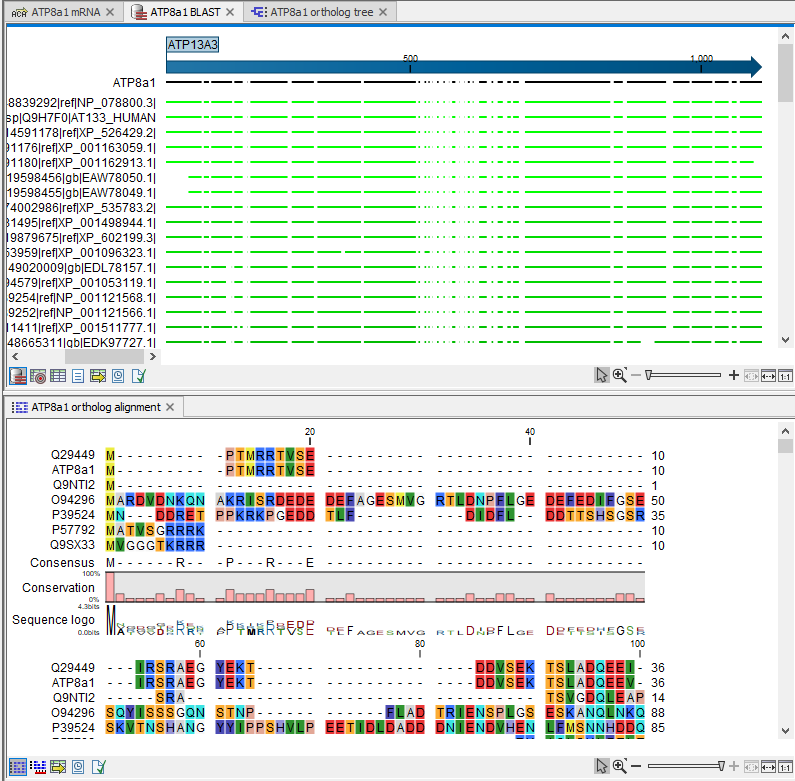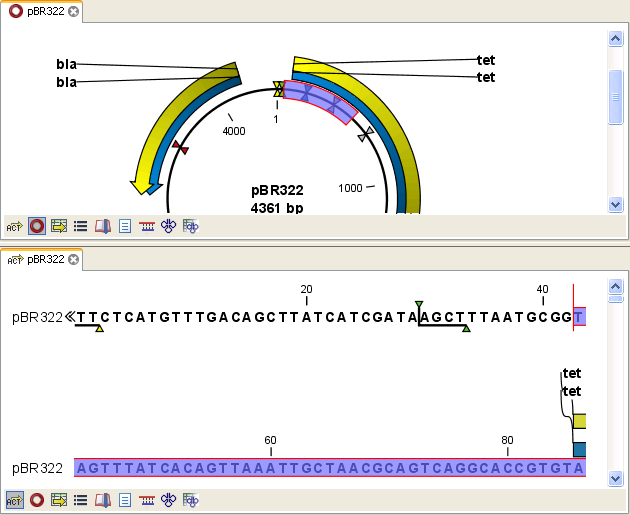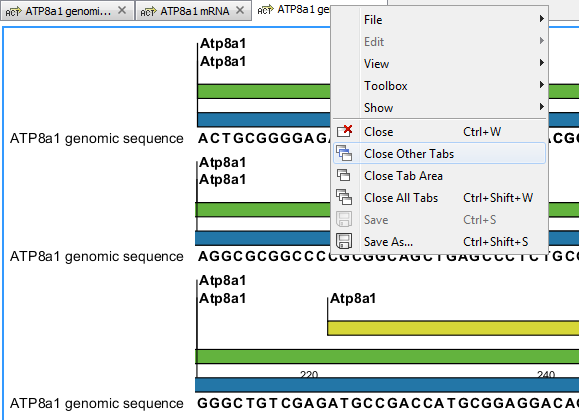The View Area is where elements are displayed when opened. Each open element is shown in a view, with a tab at the top containing the element's name (figure 2.2). Mouse-over a tab to reveal a tooltip containing summary information about the element.
Tabs can be dragged to put them in the order desired, and to move them to a different area in a split view (Arrange views in View Area).
Right-clicking on a tab opens a menu with various navigation options, as well as the ability to select tools and viewing options, etc.
There are multiple ways to open an element in the View Area, including:
When opening an element while another element is already open, the newly opened element will become the active tab. Click on any other tab to open it and make it the active view. Alternatively, use the keyboard shortcuts to navigate between tabs: Ctrl + PageUp or PageDown (or ![]() + PageUp or PageDown on macs).
+ PageUp or PageDown on macs).

Figure 2.2: Four elements are open in the View Area, organized in 2 areas horizontally - 3 elements in the top area, and one in the bottom. The active view is in the top area, as indicated by the blue bar just under the tabs.
To provide more space for viewing data, you can hide Navigation Area and Toolbox by clicking the hide icon (![]() ) at the top of the Navigation Area. You can also hide the Side Panel using the same icon at the top of the Side Panel.
) at the top of the Navigation Area. You can also hide the Side Panel using the same icon at the top of the Side Panel.
For some data types and some views, tooltips provide additional useful information. Hover the mouse cursor over an area of interest to reveal these. For example, hover over an annotation on a sequence and a tooltip containing details about that annotation is shown. Hover over a variant in a variant track, and information about that variant is shown.
If you wish to hide such tooltips while moving the mouse around in a view, hold down the Ctrl key.
Tooltips can take a moment to appear. To make them show up immediately while moving the mouse around in a view, hold down the Shift key.
Various views of a data element are available, with the views available depending on the data type. These can be opened by clicking on the icons at the bottom of an open view. The two views at the end of the set are always those for the History view (![]() ) and the Element Info view (
) and the Element Info view (![]() ).
).
For illustration, the icons for views available for sequence elements are shown in figure 2.3. Clicking on the Show As Circular (![]() ) icon would present the sequence in a circular view. Mouse over any of these icons to see the type of view they represent.
) icon would present the sequence in a circular view. Mouse over any of these icons to see the type of view they represent.
![]()
Figure 2.3: The icons presented at the bottom of an open nucleotide sequence. Clicking on each of these presents a different view of the data.
To open a linked view, keep the Ctrl key (![]() on macs) depressed and then click on the item to open. E.g. to open a different view of the same element, click on one of the icons at the bottom of the open view. The new view will open, often in a second, horizontal view area. When the View Area is already split horizontally, the new view is opened in the area not occupied by the original view.
on macs) depressed and then click on the item to open. E.g. to open a different view of the same element, click on one of the icons at the bottom of the open view. The new view will open, often in a second, horizontal view area. When the View Area is already split horizontally, the new view is opened in the area not occupied by the original view.

Figure 2.4: A split view of the same sequence element
Further information about split views is provided in Arrange views in View Area.
To close a view, click on the X to the right of its name in the top tab. Alternatively, right-click on its tab and choose the Close Tab option, or use the keyboard shortcut Ctrl + W (![]() + W on macs). Multiple tabs can be closed using options available under Close Multiple Tabs in the context menu (figure 2.5).
+ W on macs). Multiple tabs can be closed using options available under Close Multiple Tabs in the context menu (figure 2.5).

Figure 2.5: Right-click on a tab to open a menu with options to close that tab and or to close multiple tabs.
The options for closing multiple tabs are: